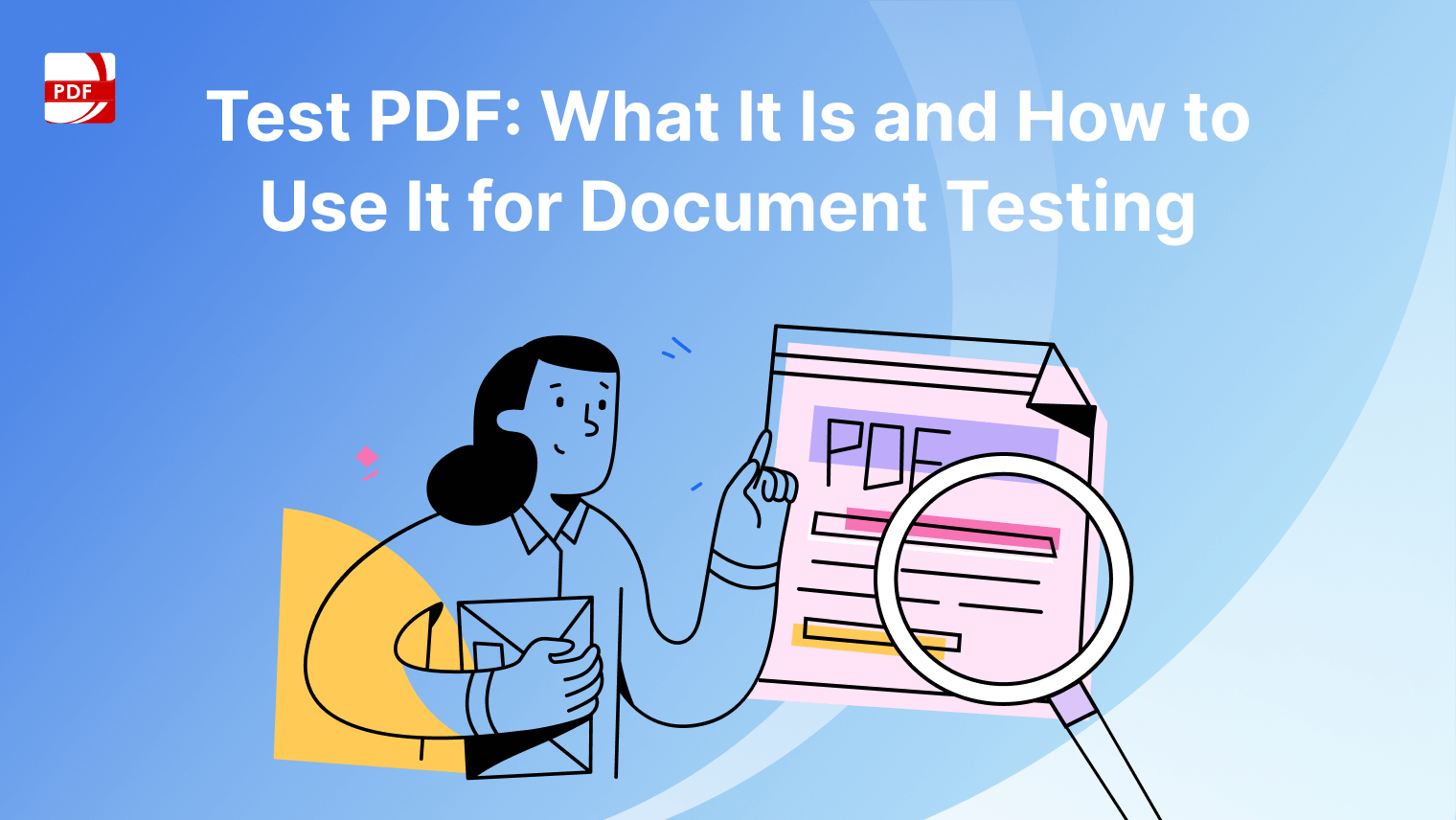Staying organized, productive, and well-informed is crucial for students and researchers.
Fortunately, the digital age has ushered in a plethora of tools designed to streamline tasks, enhance collaboration, and facilitate efficient information management.
Overview of Tools
Peruse our table for a quick overview of each analytics tool, academic software, and its purpose.
| Tool | Key Features | Use Case | Platform | Collaboration | Integration |
| PDF Reader Pro | PDF annotation, editing, form filling | Annotating, editing, and managing research documents | Windows, macOS, iOS, Android | Limited, primarily individual work | MS Word, Google Docs, Web Importer |
| Zotero | Browser extension, group collaboration | Collecting, managing, and citing research sources | Windows, macOS, Linux | Strong collaborative features | MS Word, Google Docs, LibreOffice |
| Grammarly | Grammar and spelling suggestions, writing style | Enhancing writing quality, proofreading | Web, Windows, macOS | Yes, through shared documents | MS Word, Google Docs, Browser plugins |
| Mendeley | Reference management, academic social networking | Organizing research, collaborating with peers | Windows, macOS, Online | Collaboration within research groups | MS Word, LaTeX, Web Importer |
| Evernote | Note-taking, organization, project collaboration | Capturing ideas, research note organization | Windows, macOS, iOS, Android | Collaborative note-sharing | MS Word, Google Drive, Outlook |
| Google Scholar | Access to scholarly articles, citation tracking | Research and literature review | Web, iOS, Android | Limited, primarily individual work | Google Docs, Google Drive |
| Trello | Visual project management, collaboration | Organizing tasks, managing research projects | Web, iOS, Android | Strong collaborative features | Google Drive, Slack, GitHub |
| OneNote | Digital notebook, note-taking, organization | Note-taking, project organization | Windows, macOS, iOS, Android | Collaborative note-sharing | MS Word, Outlook, Microsoft Teams |
| Forms.app | Drag-and-Drop Form Builder | Analyze collected data and generate reports to gain insights. | Web, iOS, Android | Allows multiple users to design forms collaboratively. | Google Drive, Zapier, Slack, Microsoft Office, Email, Webhooks |
1. PDF Reader Pro
PDF Reader Pro offers several benefits for both researchers and students due to its versatile features and functionalities. Here are some key advantages and popular tools listed below. 
Image Source: PDF Reader Pro
Benefits for students and researchers:
-
Efficient Document Management: PDF Reader Pro allows users to organize and manage research papers, articles, and other documents efficiently. Its intuitive interface and navigation tools make it easy to handle a large number of PDF files.
-
Annotation and Mark-Up Tools: Researchers and students can annotate PDFs with highlights, comments, and mark-ups, facilitating active reading and making it easy to revisit key points during research or study sessions.
-
Form Filling and Collaboration: PDF Reader Pro enables users to fill out PDF forms digitally. This is particularly useful for researchers and students who need to complete application forms, surveys, or other types of documents. It also supports collaboration by allowing shared form-filling.
-
Editing Capabilities: The editing features of PDF Reader Pro empower users to make necessary modifications to PDF documents. This is valuable for researchers who may need to update or revise certain sections of their research papers.
-
Cross-Platform Compatibility: PDF Reader Pro is available on multiple platforms, including Windows, macOS, iOS, and Android. This cross-platform compatibility ensures that researchers and students can access and work with their PDF documents on various devices.

How to Download PDF Reader Pro
PDF Reader Pro is a robust and versatile application designed to meet your PDF file viewing, editing, and annotation needs. With a user-friendly interface and a range of powerful features, it stands out as a comprehensive solution.
The simplest method to getting PDF Reader Pro is to click the download button below:
2. Zotero
Zotero is another powerful tool for managing research sources and citations. It offers a browser extension that allows users to save articles, web pages, and other sources with a single click. With features like group collaboration and automatic bibliography generation, Zotero has become a favorite among researchers seeking a user-friendly reference management solution.
Image Source: Zotero
Benefits for students and researchers:
- Reference Management: Zotero simplifies the process of managing references and citations. It allows users to collect, organize, and cite sources in a centralized and systematic manner.
- Browser Integration: The browser extension enables users to save sources, such as articles and websites, directly to Zotero with a single click. This streamlines the process of gathering research materials from various online sources.
- Collaboration and Group Features: Zotero supports collaboration among researchers and students. Users can create groups, share sources, and collaborate on projects, fostering teamwork and efficient sharing of resources.
- Automatic Bibliography Generation: Zotero can automatically generate bibliographies in various citation styles. This feature saves time for researchers and students, ensuring proper and consistent citation in academic papers.
- Tagging and Organization: The tagging and organization features allow users to categorize and tag sources for easy retrieval. This enhances the overall organization of research materials, making it easier to locate and reference specific sources.

3. Grammarly
Effective communication is paramount in academic writing. Grammarly, a widely used writing assistant, helps students and researchers enhance their writing by providing real-time grammar and spelling suggestions. It also offers insights into writing style and tone, contributing to the overall quality of written work.
Image Source: Grammarly
Benefits for students and researchers:
- Grammar and Spelling Corrections: Grammarly provides real-time suggestions for grammar and spelling errors, helping students and researchers produce error-free written work.
- Writing Style and Tone Analysis: The tool analyzes writing style and tone, offering insights to help users maintain consistency and convey the appropriate tone in academic writing.
- Enhanced Vocabulary Suggestions: Grammarly suggests synonyms and alternative word choices, helping students and researchers diversify their vocabulary and improve the overall quality of their writing.
- Plagiarism Detection: Grammarly's plagiarism detection feature identifies potential instances of plagiarism, promoting academic integrity by helping users avoid unintentional plagiarism in their work.
- Contextual Writing Suggestions: The tool provides contextual suggestions, considering the context in which words and phrases are used. This ensures that suggestions align with the intended meaning of the text.
Discover tips to enhance reading comprehension for students and professionals in our focused guide.
4. Mendeley
Mendeley is a comprehensive platform that combines reference management, academic social networking, and collaborative research. Users can organize their research, discover relevant articles, and connect with peers in their field. The tool's collaborative features make it a valuable asset for research groups and teams.
Image Source: Mendeley
Benefits for students and researchers:
- Reference Management: Mendeley simplifies reference management by allowing users to organize, store, and annotate research papers, articles, and other documents. It provides a centralized platform for managing citations.
- Academic Social Networking: Mendeley facilitates academic social networking, allowing researchers to connect with peers, join groups, and discover new research in their field. This fosters collaboration and networking opportunities.
- PDF Annotation and Highlighting: Mendeley enables users to annotate and highlight PDFs, enhancing the active reading experience. Researchers can make notes directly on the documents, adding valuable insights for future reference.
- Collaborative Research: The platform supports collaboration among researchers. Users can create shared groups, collaborate on projects, and share references, making it easier to work together on research endeavors.
- Integration with Word Processors: Mendeley integrates seamlessly with word processors such as Microsoft Word and LaTeX. This streamlines the process of citing sources and generating bibliographies.
Explore five compelling reasons why students should invest in a PDF tool to boost their academic productivity.
5. Evernote
Evernote is a versatile note-taking app that allows users to capture ideas, organize thoughts, and collaborate on projects. It seamlessly integrates with other tools and platforms, making it easy to sync notes across devices. Its flexibility and intuitive interface make it a go-to solution for keeping research notes organized.
Image Source: Evernote
Benefits for students and researchers:
- Note-Taking and Organization: Evernote serves as a powerful digital notebook, allowing students and researchers to take notes, organize thoughts, and compile research materials in one centralized location.
- Cross-Platform Accessibility: Evernote is available on multiple platforms, including Windows, macOS, iOS, and Android. This ensures that users can access and synchronize their notes across various devices, promoting flexibility and convenience.
- Collaborative Note-Sharing: Evernote supports collaboration by enabling users to share notes and notebooks. This is particularly useful for group projects or research teams where members need to collaborate and contribute to shared resources.
- Web Clipping and Research Compilation: The web clipping feature allows users to save articles, web pages, and other online content directly into Evernote. This helps compile research materials and create a comprehensive database of relevant information.
- Searchable Handwriting Recognition: Evernote offers searchable handwriting recognition, allowing users to search for specific terms or phrases within handwritten notes. This is beneficial for researchers who prefer to jot down ideas or annotations by hand.
Explore our top 10 reading comprehension strategies to help students grasp and retain more from their reading assignments.
6. Google Scholar
For accessing scholarly articles, Google Scholar remains an indispensable tool. It provides a simple and user-friendly interface for searching academic publications, including articles, theses, books, conference papers, and patents. Its citation tracking feature helps researchers gauge the impact of their work.
Image Source: Google Scholar
Benefits for students and researchers:
- Access to Scholarly Articles: Google Scholar provides access to a vast database of scholarly articles, research papers, theses, books, conference papers, and patents. This is invaluable for students and researchers seeking high-quality academic sources.
- Citation Tracking: Researchers can use Google Scholar to track citations for their own work or to explore the impact of specific publications. This feature aids in understanding the scholarly influence of research output.
- Literature Review Support: Google Scholar facilitates literature reviews by offering a comprehensive collection of academic literature. Researchers can explore and review relevant studies to build a strong foundation for their own research.
- Alerts for New Publications: Users can set up email alerts for specific keywords or authors, allowing them to stay informed about new publications in their field of interest. This helps researchers keep up with the latest developments.
- Integration with Library Holdings: Google Scholar often includes links to full-text articles available through institutional libraries. This integration allows students and researchers to access resources directly from their educational institutions.

7. Trello
Project management is a critical aspect of academic research, and Trello is an excellent tool for organizing tasks and projects. With its visual boards, lists, and cards, Trello enables users to create dynamic to-do lists, collaborate with team members, and track project progress seamlessly.
Image Source: Trello
Benefits for students and researchers:
- Visual Project Organization: Trello's card and board system offers a visual way to organize and manage projects. Students and researchers can create boards for different projects and use cards to represent tasks, making it easy to see the overall progress.
- Task Management: Trello allows users to create tasks, set deadlines, and assign responsibilities. This helps students and researchers keep track of their assignments, deadlines, and progress on various tasks within a project.
- Collaboration and Group Work: Trello supports collaboration by allowing multiple users to work on the same board. This is particularly useful for group projects or research teams, as everyone can contribute, comment, and update tasks.
- Customizable Workflows: Users can customize Trello boards to match their workflow. This flexibility is beneficial for adapting Trello to specific research or study processes, ensuring it aligns with the unique needs of a project.
- Integration with Other Tools: Trello integrates seamlessly with various third-party tools and services. This includes integrations with Google Drive, Dropbox, and more, facilitating the smooth flow of information and resources between platforms.
Check out our list of the 7 best back-to-school software tools for students and teachers to enhance learning and teaching efficiency.
8. OneNote
Microsoft OneNote is a powerful digital notebook that allows users to take notes, create to-do lists, and capture ideas in a flexible and organized manner. Its integration with other Microsoft Office tools makes it a valuable asset for students and researchers who rely on the Office suite.

Image Source: Microsoft OneNote
Benefits for students and researchers:
- Digital Note-Taking: OneNote provides a digital notebook where students and researchers can take notes, jot down ideas, and organize information in a structured manner.
- Multi-Platform Compatibility: OneNote is available across multiple platforms, including Windows, macOS, iOS, and Android. This ensures that users can access their notes from various devices, promoting flexibility and accessibility.
- Collaboration and Sharing: OneNote supports collaboration by allowing users to share notebooks with colleagues or classmates. This is particularly useful for group projects and collaborative research efforts.
- Integration with Other Microsoft Office Tools: OneNote seamlessly integrates with other Microsoft Office tools, such as Word and Excel. Users can easily transfer content between applications, enhancing productivity and workflow.
- Audio and Video Recording: OneNote allows users to record audio and video directly into their notes. This feature is beneficial for researchers conducting interviews, attending lectures, or capturing multimedia content relevant to their work. For those using macOS, learning how to record audio on Mac with OneNote is simple and efficient, enabling users to capture high-quality recordings directly within their digital notebooks.
9. Forms.app
Forms.app is a versatile and user-friendly form-building tool designed to streamline data collection, surveys, and feedback processes. With its intuitive interface and robust functionalities, Forms.app caters to various needs, from simple contact forms to complex surveys.
Image Source: Forms.app
Benefits for students and researchers:
- Simplified Data Collection: Forms.app simplifies the process of gathering information, making it ideal for both students and teachers. Students can use it to submit assignments, feedback, or event registrations, while teachers can collect data for quizzes, surveys, or class polls.
- Customizable Templates: With a variety of customizable templates available, Forms.app allows students and teachers to create forms tailored to their specific needs. Teachers can design quizzes and feedback forms with customized questions and formatting, while students can create forms for project submissions or peer reviews.
- Real-Time Collaboration: Forms.app supports real-time collaboration, enabling teachers to work together on form creation and review. This feature is particularly useful for collaborative projects or group assignments, allowing multiple educators to contribute and refine forms collectively.
- Data Analysis and Reporting: The app provides tools for analyzing and reporting on the collected data, offering insights that are valuable for both students and teachers. Teachers can generate reports on quiz results or survey responses, facilitating better understanding and assessment of student performance.
- User-Friendly Interface: Forms.app is designed with an intuitive and user-friendly interface, making it accessible to users with varying levels of technical expertise. Students and teachers can easily create, customize, and manage forms without requiring extensive training or technical skills.
Explore our top picks for the 8 most powerful Evernote alternatives.
These nine tools cater to the diverse needs of students and researchers, offering solutions for reference management, writing enhancement, note-taking, collaboration, and accessing scholarly resources.
Whether you're managing references, collaborating on projects, or enhancing your writing, these tools are sure to make the academic journey more efficient and rewarding.









 Free Download
Free Download  Free Download
Free Download





 Support Chat
Support Chat